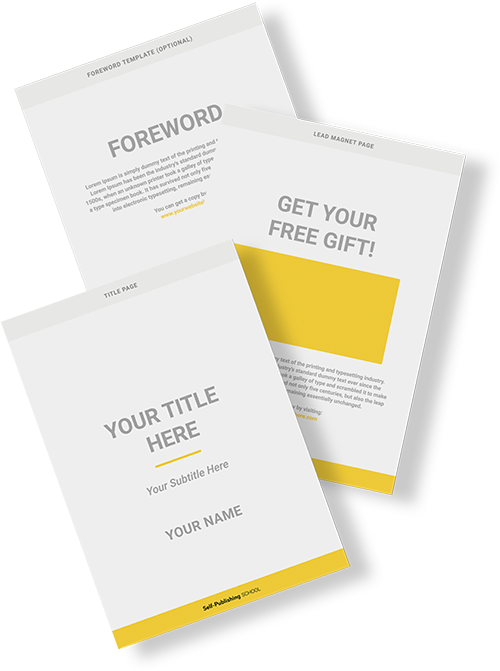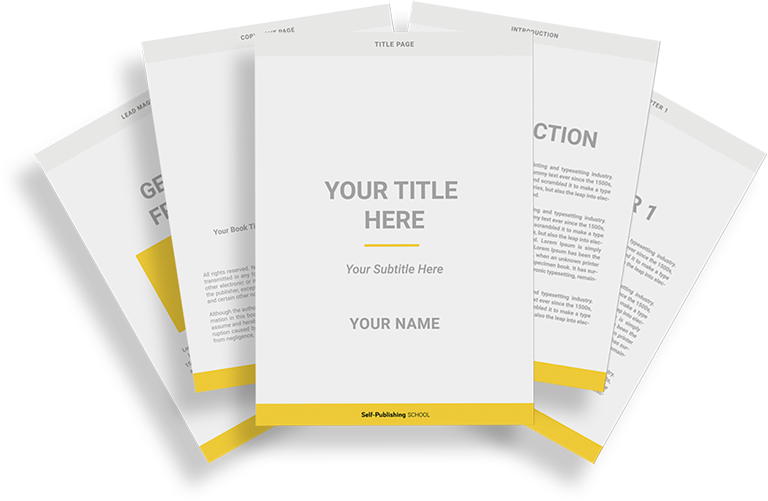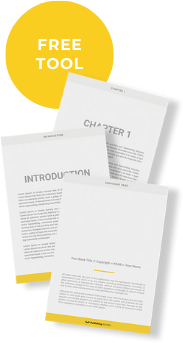A friend of mine, let’s call him Jimmy, was once on the judge panel of an open mic night for writers. After one person read their nonfiction piece, my friend loudly announced, “I know you said that’s nonfiction, but it felt so REAL.” And that was embarrassing for Jimmy.
Let’s look at the differences between fiction vs nonfiction so you don’t have to be like Jimmy.
- What is fiction?
- Examples of fiction works
- What is nonfiction?
- Examples of nonfiction works
- What is creative nonfiction?
- Should I write fiction or nonfiction?
What is fiction?
Fiction refers to literary works that are made of imagined or created worlds and characters, rather than based on anything real or factual.
In fiction, authors may use the real world as a setting in their story, but the characters, plots, and details should tell a story not based in reality. This genre includes novels, short stories, stage dramas, and other narrative formats where the author uses creativity and storytelling strategy to entertain, evoke emotions in their readers, and/or explore some facet of the human experience.
If you want to learn how to write different genres of fiction, you can read our posts on how to write fantasy, romance, mystery, sci-fi, historical fiction, and others.
If you want to read within the different genres of fiction, keep reading.
Examples of fiction works
Here are some famous examples of fictional stories in various genres.
SciFi/Dystopian
- “Dune” by Frank Herbert
- “Neuromancer” by William Gibson
- “Ender’s Game” by Orson Scott Card
- “The Hunger Games” by Suzanne Collins
Fantasy
- “The Hobbit” by J.R.R. Tolkien
- “A Game of Thrones” by George R.R. Martin
- “The Chronicles of Narnia” by C.S. Lewis
- “The Name of the Wind” by Patrick Rothfuss
Mystery/Thriller
- “The Girl with the Dragon Tattoo” by Stieg Larsson
- “Gone Girl” by Gillian Flynn
- “The Woman In Cabin 10” by Ruth Ware
- “Sherlock Holmes” series by Arthur Conan Doyle
Historical Fiction
- “The Book Thief” by Markus Zusak
- “All the Light We Cannot See” by Anthony Doerr
- “The Pillars of the Earth” by Ken Follett
- “Wolf Hall” by Hilary Mantel
- “The Pike Boys” by Danny Cherry Jr.
Romance
- “Pride and Prejudice” by Jane Austen
- “Gwen & Art Are Not In Love” by Lex Croucher
- “Red, White & Royal Blue” by Casey McQuiston
- “The Fault in Our Stars” by John Green
- “Jane Eyre” by Charlotte Brontë
What is nonfiction?
Nonfiction refers to literary works that are made of factual information, real events, and at least somewhat accurate accounts of the real world. Nonfiction is grounded in reality, but it can take artistic license to protect identities, create a more cohesive narrative, or present information in a format that is easier to understand.
If you want to learn how to write in the different genres of nonfiction, you can read our posts on how to write memoir, autobiography, self-help, travel, and faith-based. Novelpad even has a good article on how to write essays, and of course, there’s still marriage, parenting, history, science, technology, and journalism too.
Examples of nonfiction works
Here are examples of nonfiction books in various genres.
Autobiography and Biography
- “The Woman in Me” by Britney Spears
- “The Autobiography of Malcolm X” by Malcolm X and Alex Haley
- “Steve Jobs” by Walter Isaacson
- “I’m Glad My Mom Died” by Jennette McCurdy
Essay Collections
- “How To Ruin Everything” by George Watksy
- “Obviously: Stories from My Timeline” by Akilah Hughes
- “The Myth of Sisyphus” by Albert Camus
- “A Room of One’s Own” by Virginia Woolf
- “Men Explain Things to Me” by Rebecca Solnit
History
- “A People’s History of the United States” by Howard Zinn
- “The Guns of August” by Barbara W. Tuchman
- “Sapiens: A Brief History of Humankind” by Yuval Noah Harari
- “The Wright Brothers” by David McCullough
- “The Devil in the White City” by Erik Larson
Memoir
- “Educated” by Tara Westover
- “The Glass Castle” by Jeanette Walls
- “Wild” by Cheryl Strayed
- “Hillbilly Elegy” by J.D. Vance
- “When Breath Becomes Air” by Paul Kalanithi
Social and Cultural Commentary
- “The Feminine Mystique” by Betty Friedan
- “The Souls of Black Folk” by W.E.B. Du Bois
- “Between the World and Me” by Ta-Nehisi Coates
- “Evicted: Poverty and Profit in the American City” by Matthew Desmond
- “Bullshit Jobs: A Theory” by David Graeber
Faith-Based
- “The Power of Now” by Eckhart Tolle
- “The Road Less Traveled” by M. Scott Peck
- “Help, Thanks, Wow” by Anne Lamott
- “The Purpose-Driven Life” by Rick Warren
- “The Reason for God” by Timothy Keller
What is creative nonfiction?
Creative nonfiction is a true story told in a creative narrative format, like a novel based on true events. Creative nonfiction is the genre that often trips people up. Is it fiction? Is it non? It’s kind of both!
While authors may take artistic license to make a true narrative more complete, impactful, or entertaining, the facts of the story should remain true to be considered creative nonfiction.
Should I write fiction or nonfiction?
Whether you write fiction or nonfiction fully depends on your goals and preferences. Here are some considerations that might help you decide.
Your interests
If you love making up stories, creating worlds, and building original characters, fiction might be for you. Having a vivid imagination and passion for creativity can be quite helpful.
If you find your passion in real-world events, information, and facts, nonfiction might be for you. Enjoying research and compiling information in an engaging way can be helpful for nonfiction writers.
Your goals with the work
If you’re looking to entertain, stir emotions, or get some point across that you’d like to fictionalize a bit, fiction’s for you!
If you want to inform, educate, inspire change, or have a direct impact on your readers’ knowledge and understanding of your subject matter, nonfiction might be the way you go.
If you just enjoy writing in general, and you’d like to do it for a living, nonfiction might provide more opportunities for generating wealth, but that doesn’t mean writing fiction can’t be lucrative.
Your personal strengths
Some writers excel at creating from scratch—if you love to develop characters, map out plots, and dream up worlds, fiction might align with that set of skills.
If you lack a bit in the creative department, but you love research, learning, teaching and/or organization, nonfiction can provide an outlet for those skills.
The core idea
Sometimes we have one specific concept that we want to explore, and we’re just looking for the best method to do so. If you have a unique story to tell, emotions to convey, a message, information, or knowledge to share with others, nonfiction or fiction might both suit.
If your concept is a bit loftier and difficult to tangibly convey, fiction might be best. You can pull on creative allegory and personification for your message. So if the moral you want to explore is the balance between taking care of yourself and taking care of others, a fictional story with a main character learning that lesson could suit that premise.
If you have a more specific message, like informing readers of the drawbacks of keeping sea mammals in captivity, you might do better with nonfiction so you can include specific data and reasoning for that argument. Within nonfiction, you can include real world narratives and even present them as prose.
Think of how your message could be easier or more enjoyable to digest for readers, and that may tell you which route to take.
Next Steps
To sum up, fiction means fake. Fiction=fake. Nonfiction=non-fake. And there you have it. Let’s not be Jimmy.


Book Outline Generator
Choose your Fiction or Nonfiction book type below to get your free chapter by chapter outline!
Book Outline Generator
Enter your details below and get your pre-formatted outline in your inbox and start writing today!
CONGRATULATIONS
Thanks for submitting! Check your email for your book outline template.
In the meantime, check out our Book Outline Challenge.
